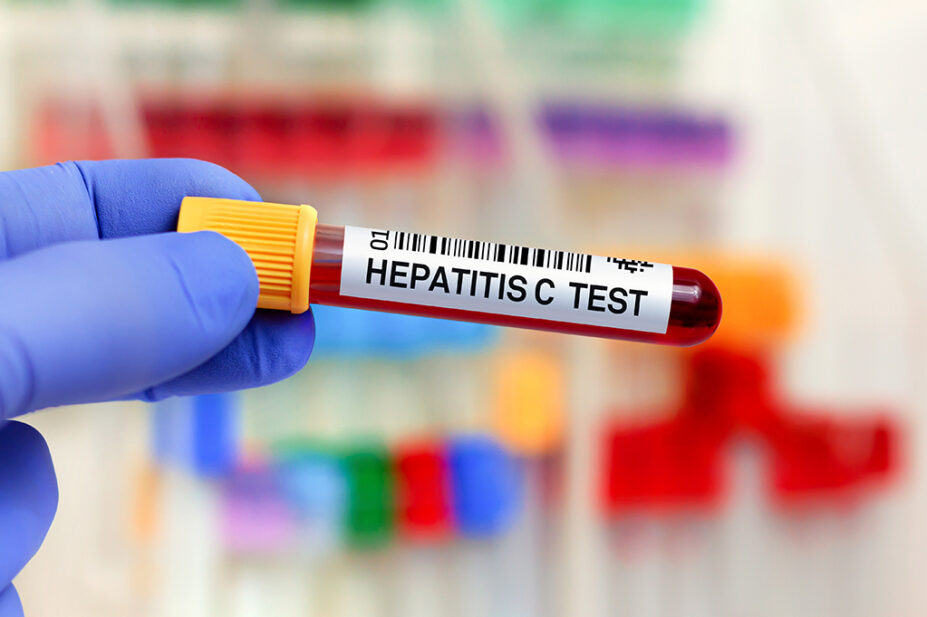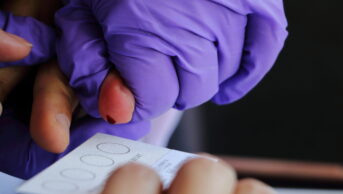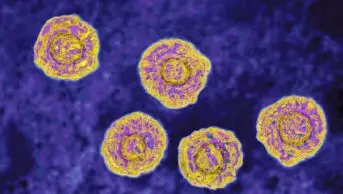
Shutterstock.com
The UK Health Security Agency (UKHSA) has launched a genomic surveillance programme for hepatitis C virus (HCV), “in a bid to monitor drug resistance, tackle harder to treat viral strains and detect outbreaks sooner”.
In an announcement published on 12 March 2025, the UKHSA said the technology will allow “a better understanding of treatment outcomes to inform national treatment programmes, as well as transmission patterns to stop ongoing transmissions among populations at risk of HCV”.
Data published alongside the announcement show a significant drop in chronic HCV infections across England, with the number of people aged over 16 years with the disease having fallen from 129,400 people in 2015 to 55,900 people in 2023 — a decrease of 56.7%.
The data also show that HCV-related mortality has fallen from 0.69 per 100,000 people in 2015 to 0.41 per 100,000 people in 2023.
In addition, the proportion of people who inject drugs who have cleared the infection has almost doubled, from 23.0% in 2015 to 45.4% in 2023.
The UKHSA attributed the decline in people living with the virus to NHS England’s HCV Elimination Programme, which has driven increased testing and improved access to direct-acting antivirals (DAAs), with improved treatment efficacy.
However, the agency noted that some strains of the virus are resistant to antivirals.
The UKHSA added: “Data from 2023 showed that 5% of subtype 1a samples from patients who have not had treatment before were resistant to one class of HCV antiviral drugs.
“In addition, some HCV subtypes that are prevalent in Asia and sub-Saharan Africa, but are also found in this country, show inherent resistance to some DAAs.
“In order to monitor this situation more closely, UKHSA has established a genomics surveillance programme, to look for genetic markers of drug resistance.”
Monica Desai, hepatitis C lead at the UKHSA, said: “Early diagnosis and effective antiviral drugs have played a huge part in driving down hepatitis C in this country, but we must always be alert to the emergence of resistance putting progress in jeopardy. Through our genomic surveillance programme, we can monitor changes in how the virus is responding to treatment and more quickly respond if resistance increases.
“Many people live with hepatitis C without knowing it, as symptoms often don’t show for years. But early diagnosis means faster access to highly effective treatments that prevent liver damage.”
Commenting on the announcement, a spokesperson for charity The Hepatitis C Trust said: “This is a very welcome step. We are likely to be one of the first countries globally to eliminate hepatitis C, preventing cancer and ill health for thousands of people.
“This is an incredible achievement. Effective surveillance is essential both to achieving this goal and to maintaining elimination once we get there.”
In April 2024, HCV was reported to have been “micro-eliminated” at HMP Berwyn, the UK’s largest prison, following an initiative involving prescribing pharmacists.
You may also be interested in

How we treated more than 100 hepatitis C patients at pharmacist-led clinics in North Wales

Community pharmacies have an essential role in sustaining the elimination of hepatitis C in England
